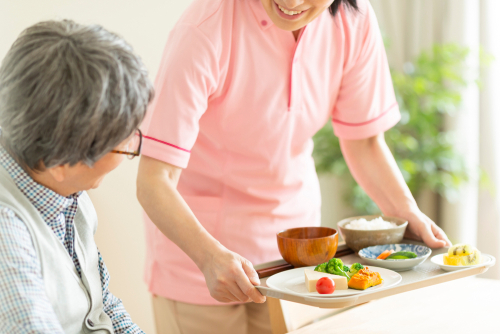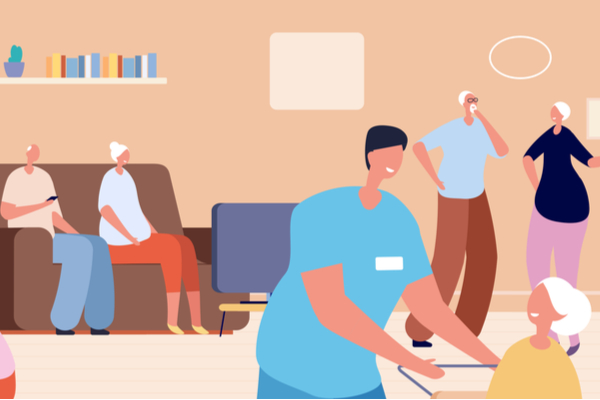Loneliness and isolation are often areas of concern for older Australians’ wellbeing.
According to research, a lack of social connection can carry health risks equivalent to other high risk behaviours such as smoking 15 cigarettes a day. Supporting elderly mental health and wellbeing is important and we need to educate ourselves about it.
The impact of isolation on older Australians
Isolation and loneliness can have a profound impact on every aspect of the health and wellbeing of the elderly, including physical health, mental health and emotional wellbeing. Loneliness can manifest in many ways including depression, anxiety, tiredness, sleep problems, loss of appetite, substance use and body aches. Pre-existing health conditions can worsen or thoughts of self-harm can arise. With this in mind, it is more important to monitor the wellbeing of the elderly people in your care.
Providing support for elderly mental health and wellbeing
Thankfully, there are a variety of ways we can support the wellbeing of the seniors in our lives. These can include:
Set up routines
Routines can help to alleviate feelings of depression and anxiety, so help the older individuals around you set up schedules that work for them. This can incorporate hobbies, phone calls, movement, practicing mindfulness and more. Include a set time or day to have a chat and check-in with the wellbeing of elderly individuals so that they know that opportunity is coming up to talk to someone.
Technological guidance
While video conferencing may come naturally to many of us, for seniors in our communities it could be quite new and seem impossible to get up and running. A little support with getting their technology online and ready to go can help them stay in contact with loved ones and provide much-needed interaction, even when life gets busy.
Exploring escapism
Escaping into some fiction can be a welcome break and an enjoyable hobby too. Distraction can often be a useful tool for calming the mind or reducing feelings of depression. Television shows can also provide an escape when we need it, and the same goes for books. Help older Australians in your care to find a show or book that they enjoy; audiobooks are another option that could be useful, or even create a library of DVDs and books for residents to borrow from.
Seek shared experiences
Sharing experiences with others doesn’t need to be in person. Even watching online classes can feel like a connected activity. Some families have taken to watching shows at the same time or even doing so on a call to enjoy the activity together.
Know where to reach out
When times get tough, there are many resources available for the elderly to reach out and access support for their mental health and wellbeing.
While you continue supporting the elderly mental health and wellbeing, Selmar is here to support the aged care sector. If you have any questions, please contact us.




